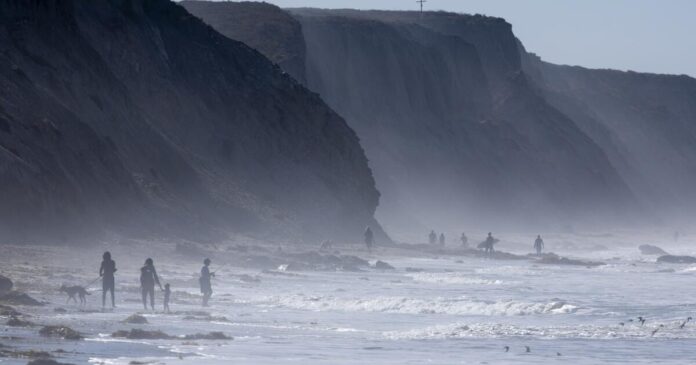“From Coastal Conservation to Political Battles: The Ongoing Fight to Protect California’s Coast”
In 1972, a pivotal moment in California’s history occurred when thousands of Californians banded together out of concern for the state’s coast. They feared that the beautiful coastline was at risk of being overdeveloped, industrialized, ecologically damaged, and privatized beyond repair. This movement led to the creation of Proposition 20, which called for the establishment of a commission to protect and enhance the environment and ecology of the coastal zone.
Rue Furch, a Sonoma State University student, volunteered for Proposition 20, playing a role in collecting signatures, holding signs, and attending rallies to support the cause. In Sacramento, Sam Farr, who would later become a U.S. congressman, organized a coastal bike ride with state Sen. Jim Mills to garner support for Proposition 20. The bike ride attracted significant media attention as cyclists traveled from San Francisco to San Diego, camping at state parks along the way.
Fast forward to the present day, and the California Coastal Commission, established as a result of Proposition 20, is facing unprecedented threats. The Trump administration, federal legislation, and other critics have targeted the commission for its perceived challenges and obstacles to development. President Trump himself has expressed frustration with the commission, particularly in the aftermath of wildfires, vowing not to let them interfere with rebuilding efforts.
Elon Musk, the CEO of SpaceX, has also clashed with the Coastal Commission over rocket launch approvals near Vandenberg Space Force Base. Musk’s company sued the commission after a bid for increased launches was rejected, citing concerns over environmental impacts and sonic booms. Recent SpaceX disasters have further fueled the debate over the company’s operations and the commission’s oversight.
Critics of the Coastal Commission, including some Democratic legislators and Republicans like U.S. Rep. Kevin Kiley, have called for reforms to limit the agency’s power. However, advocates like Susan Jordan of the California Coastal Protection Network warn that weakening the commission could open the door to harmful commercial ventures and environmental degradation along the coast.
Despite its flaws and controversies, the California Coastal Commission remains a vital guardian of the state’s coastline. The Coastal Act of 1976, inspired by the grassroots movement of the 1970s, guides decisions on land and water use in the coastal zone, emphasizing the importance of stewardship and public access to this natural treasure. The late Peter Douglas, one of the commission’s founding directors, recognized the ongoing threats to the coast and the need for continued vigilance in protecting it for future generations.
As debates over the commission’s authority and effectiveness continue, the legacy of the 1972 movement serves as a reminder of the ongoing importance of preserving California’s coast for all to enjoy. The fight to protect the coast is not a one-time effort but a continuous battle to ensure that this precious resource remains intact for years to come.
